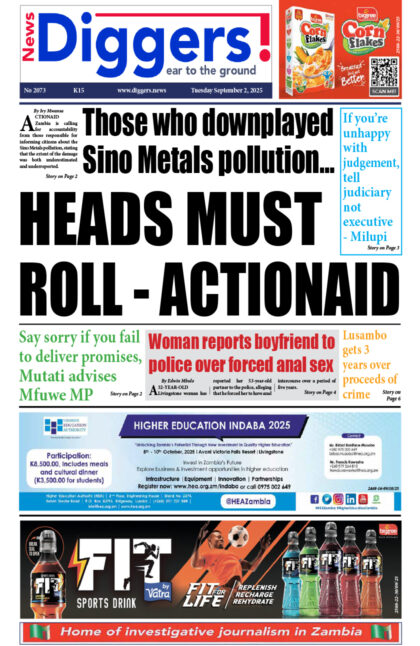Kapoche member of Parliament Dr Charles Banda says it is unfortunate that people in rural areas have to walk long distances to go and cast their votes and when a politician helps by providing transport, it becomes a case of electoral malpractice.
And Sinda District Electoral Officer Robby Chitambo says due to the increase in population and taking into account the long distances between polling stations, government through the Electoral Commission of Zambia (ECZ) decided to carry out a delimitation exercise.
Speaking during delimitation workshop at Chassa Boys Secondary school, Saturday, Banda observed that the problems that voters in the constituency faced in 2011 when the last delimitation exercise took place were still there.
“People suffer to reach polling stations due to long distances such that we are made to hire vehicles to transport people to the polling station, but again you say its wrong as it is a form of malpractice. So to solve this, its to bring polling stations nearer to where people are, then the voter apathy we experience will be reduced,” Banda said.
“And for you to create two wards in Sinda, its another regret as we are not solving any problem because for example in Kapoche we have Matambazi and Mwangaila wards which stretch from the Great East Road to the Mozambique border about 35 kilometres. I expected that you are coming to tell us to delimitate all big wards, but like this we are not moving forward.”
Dr Banda recalled that he was happy when Kapoche Constituency was delimitated in 2011 to form Kaumbwe Constituency, but was disappointed to see ECZ add wards which where under Sinda in Chief Kathumba and chieftainess Kawaza to Kapoche, which did not solve any constituency problems in terms of size.
Speaking at the same event, Chitambo said due to increase in population and distances to polling stations government through ECZ decided to carry out a delimitation exercise.
“The commission under article(58)(5) of the Republican constitution has a mandate to divide the country into constituencies, wards and polling districts for the purpose of conducting elections. You may recall that the commission conducted reviews of electoral boundaries in 2010 and later in 2014 which resulted in an increase in the number of wards from 1,422 to 1,624 and from 6,456 to 7,700 polling districts nationwide” said Chitambo.
“This exercise has been necessitated by several factors which include an increase in population, long distances that voters cover to access electoral services, developmental and new settlement patterns among others. It has come to the attention of the Commission that some polling stations are located in places not convenient for conducting elections, hence the Commission will only be able to effect delimitation of the new constituencies and wards after the amendment of the constitution and after the Ministry of Local government issues the statutory instruments to provide for the new wards in accordance with Local Government Act.”
And former Sinda member of parliament Levy Ngoma said at times politicians create problems of delimitation because during campaigns they extend to areas which are not in their wards or constituencies, a situation he said confuses the electorate at the time of voting.
“Delimitation is key to effective representation, as without delimitation geographical representation becomes difficult as far as counsellors and members of Parliament are concerned in executing their duties. We want a developed Sinda, we want to see better roads, we want to see better schools, we want to see better clinics, we want to see better services in as far as agriculture is concerned, we want to see people accessing clean and safe water. We want to have Sinda which is violence free,” said Ngoma
The event was attended by various political parties such as Patriotic Front, UPND, Rainbow, FDD, MMD and other sectors such as Parrogate, CCJP, Red Cross and other government departments.
























